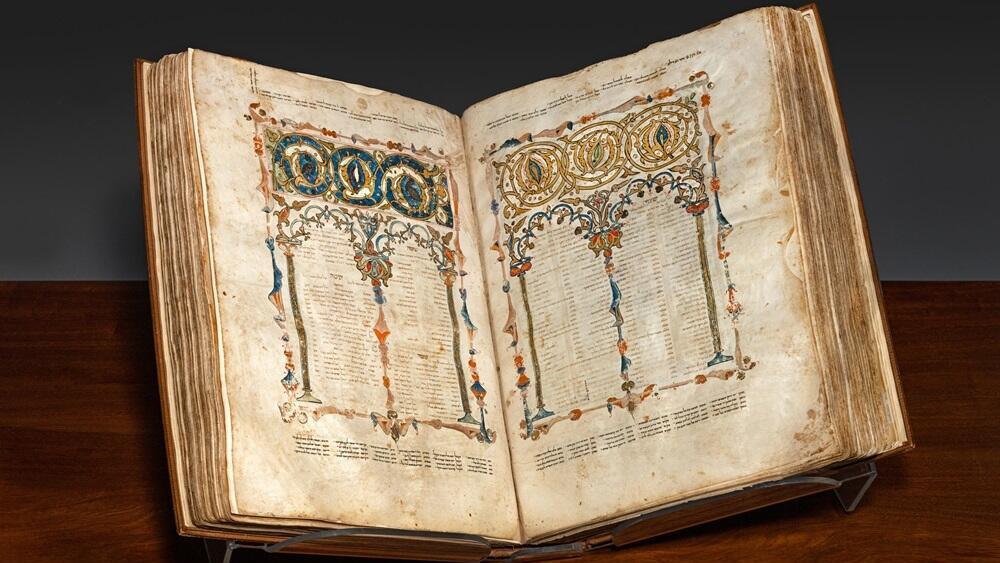The events of October 7 tore through the fabric of routine and exposed the deepest questions of identity, belonging, and destiny. Precisely from within the shock, I find myself returning again and again to the Bible, not merely as a symbol or religious text, but as a vital compass and a foundation for reflection and return. Today, more than ever, it is clear to me: if we wish to build a living, breathing Jewish culture here, we must restore the Book of Books to the center of our lives.
Some time ago, I spoke with one of the graduate students at the Schechter Institute whose daughter was murdered on October 7. The tone of her voice conveyed urgency and distress, and her words reflected confusion. She understood that her daughter was murdered in a kibbutz near the Gaza border because she was Jewish, but she herself did not know what that Jewish identity truly meant for her and her family. Her question, “What does it even mean to be Jewish?” echoed in various forms throughout our conversation and touched on fundamental existential questions about the meaning of human life, one’s circles of belonging, destiny and purpose.
These issues rarely trouble people during the fast-paced routine of life. We often fooled ourselves into thinking they were obsolete. But at certain moments in a person’s life and in the life of a nation, these questions can no longer be ignored. They knock at our door and demand our attention.
Such a moment occurred on October 7. The encounter with terror, evil and death tore through the thin layer of everyday life and exposed us, as individuals and as a society, to the deeper layers of our identity. The acts of bravery and sacrifice bore witness to our nobility of spirit. But what is our identity, and what is the source of that spirit? What values do we hold? What connects us to one another? What binds us to this place?
We seek footholds and search for direction and guidance, yet it’s not clear where to turn, for many of our channels are almost entirely blocked. We have almost completely lost our living connection to the masterpieces and ancient traditions that shaped our culture and defined our concepts of our place and role in the world. Suddenly, we realized that the past pulses within the present, that we are all part of a vast web of familial ties, ancient traditions and shared ideas, yet we lack familiarity with the emotional, religious, intellectual and historical factors that shaped them. We no longer have mastery of the language and knowledge needed to understand them. To understand ourselves.
This loss is especially painful in light of the tremendous spiritual creation brought into the world by the Jewish people, who sanctified intellectual effort, constructed monumental spiritual edifices with words, and strove to transcend material existence and give it meaning. Foremost among these is the Bible, the Book of Books, which lived powerfully in the spirits of previous generations and shaped Jewish culture from its inception. Almost every post-biblical literary work refers to it, including the following immortal lines: “They are born with a knife in their heart” (Haim Gouri); “Go forth on a path of night, of knife and blood” (Nathan Alterman); “For your father clothed you in a coat of many colors, your brothers brought you as a sacrifice” (Leah Goldberg); “Her blood flows in mine, her voice sings within me” (Rachel); “To die like Rachel, when the soul trembles like a bird” (Dahlia Ravikovitch).
One cannot understand the meaning of these words and images without familiarity with the biblical references. They will not reach readers’ hearts in the absence of such knowledge. Sadly, we must honestly acknowledge that the average Israeli, for whom the Bible is nearly absent from consciousness, will not fully grasp their depth.
Lack of biblical literacy not only hinders understanding of cultural phenomena and ancient texts but also cuts us off from sources of inspiration that could revive our spirits today. We could, for example, learn from the creation story about humanity’s fragile yet elevated status, being created in the image of God. From the Garden of Eden story, we might grasp the heavy responsibility placed on our shoulders to distinguish between good and evil and explore the emotional, familial, theological, and national costs of choice and rejection. The power of family loyalty, the roots of friendship, the dangerous impact of pride, and the tight bond between love, jealousy and hatred all interwoven throughout the Bible — can illuminate our situation today. Biblical laments over destruction could resonate within our hearts, and the prophecies of comfort might breathe hope into our souls.
But these spiritual treasures are sealed to many of us. To some in Israeli society, they even feel foreign and alien. The fear of religious coercion has bred ignorance that narrows our perspective and blocks the intellectual ferment vital to preserving our identity and cultivating our culture.
While the gates of books have not been closed and anyone may read them, the language of ancient Jewish sources is acquired through diligent effort from early childhood. Like any language, it is difficult to internalize later in life. Those not exposed in youth to biblical Hebrew and its interpretive methods will struggle greatly to understand it, and many of its layers will remain obscure.
Just as a lack of sufficient emotional contact in infancy harms a person’s psychological health as an adult, so too does the absence of adequate spiritual contact in childhood impair one’s spiritual stature. Contrary to popular belief, the potential of knowledge just a click away grants us nothing. Only knowledge itself, absorbed patiently over time, takes root and enables authentic dialogue and connection.
2 View gallery


The nano Bible, the world’s smallest Hebrew bible
(Photo: Nitzan Zohar, Technion spokesperson)
Restoring the Bible to its foundational role as a source of inspiration and meaning in Israeli society must be a top priority for religious, traditional, and secular Jews alike, and for anyone who sees themselves as part of the Jewish people. The urgency is greater than ever. Without a doubt, we must increase the hours of Bible study in schools and return humanistic learning to center stage. The Ministry of Education is right to pursue this, and perhaps the standardized tests will signal its seriousness.
But it will not work unless we truly want it. It will not succeed if the study merely recounts and interprets the past without reviving it as a key to the future. If we are not convinced of the urgent, vital need to open a channel between ourselves and the Jewish spiritual world, its waters will never flow. If we do not raise up inspiring teachers who teach with passion and love, students will not find meaning in the content, and we will have lost more than we gained. And if we do not study ourselves, we cannot pass on Torah to our children.
The student I mentioned at the start chose to pursue a graduate degree in Jewish Studies at the age of 50, after the terrible loss she experienced, because we need learning today more than ever that revives the soul and connects directly to life in a tangible, real way. Not as outside observers, but as members of the household, engaged in dialogue with generations of past interpreters and capable of offering new insights into the scriptures.
Seek out a beit midrash near you and close to your heart a place that fosters reflection and depth, thought and growth. Choose the path of study that suits you and the doorway that matches your spirit. Claim Judaism for yourself and your family. It is not in the heavens, for it is close to us to do it. And if not now, when?
Dr. Sarah Schwartz, dean of the Schechter Institute of Jewish Studies and bereaved mother of fallen soldier David Schwartz z”l, is currently initiating the conference “There Is Hope for Your Future,” to be held on June 17–18 in cooperation with Reichman University. The conference is dedicated to resilience, hope, and unity and seeks to grapple with the rupture of bereavement and pain by connecting to the cultural and spiritual depth of the Jewish people.





